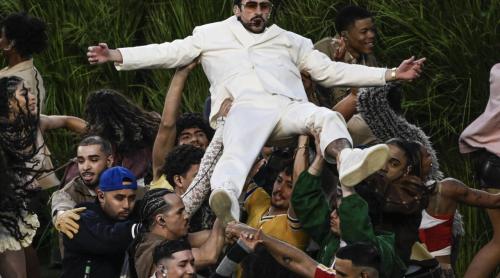
ADRIAN VASILESCU - June 21 2004
Since Montesquieu wrote his work, the rule of law is forever linked with the principle of separation of powers in a state. This means that under no circumstances and for no reason are the legislative, executive and judicial powers to interfere one into the otherâs territory.
For a long time, which is since the mid 18th century to the end of the 20th century, the principle of separation of powers was confined to defining the state and the rule of law.
But then, out of the blue, it encompassed the realm of money too. The idea was first born in American and West European universities, by the end of the previous century. Then it got followers in banking institutions, in political and business media. Slowly but surely it passed into laws and financial good practice.
Nowadays, no where on this planet is the working market economy conceived in the absence of a complete separation of powers in the realm of money too.
This means that the fiscal policy of a country stays with its Ministry of Finance and the Executive. These are the authorities mapping the revenue and expense plans, or the budget, which is then subjected to Parliament approval.
This time, the monetary policy rests with the Central Bank of a country, and is conducted according to market rules. This is the way things go today in the world of money, as there is a true money-world out there: tumultuous, on a constant change, with rules and customs of its own, and practices that continuously adapt to the moves of the real greater world.
Another comparison would bring us closer to the truth: the one between the blood circulation in a human and the money circulation in the economy. The money goes around the economic system as the blood goes around and feeds the human body. Thus the money circulation is as vital for the economy, as the blood circulation is for humans.
Most certainly Montesquieu, who described in the 18th century that democracy is fully dependent on the separation of powers in a state, did not foresee the need for a separation of power in the world of money. It was too soon. Still, he thought that for progress one needs both things and money. He stated, however, that "one can buy things with money, but never money; money can only be borrowed."
The time of Montesquieu has passed. Money is sold and bought today. Obviously, it is also lent and borrowed, for a price - which is the interest rate. At the same time, however, money is bought and sold on a large scale on monetary or currency markets.
Money is on the move, thatâs for sure. People learned that money which is not moving around loses value. This is why they move it around, from one account to another, from one bank to another, from one country to another. In this whirlwind of money other money is made as a profit from money circulation.
First, the Executives were not to issue money any longer. Then the central banks got the prerogatives for running the monetary and currency markets, and administering the gold and hard currency reserves. Finally, the full independence of Central Banks came about.
The recent debates in Romania on the adoption of the Law for the National Bank showed that moving from past to future is never an easy ride. The process turned out to be a painful one, but the future won in the end.
In fact, the need for Romania to not miss the 2007 European Integration mark was the one that pushed for the win, along the apprehensions that Romania could not be granted by the end of this fall the status of working market economy.
The monetary policy and its role in developing the Romanian society, as conducted under the rule of the National Bank, are interpreted nowadays particularly from the stand point of the countryâs future EU integration. We are faced thus with a fascinating world, that cannot move forward in the absence of a solid center: a central bank specialized for using both scientific research and bank practices along refined economic, sociological and psychological observations, conducted with the outmost professionalism.
Translation: ANCA PADURARU
Citește pe Antena3.ro

















